Contents
- Indications for taking antibiotics for diarrhea
- Why doesn’t common diarrhea require antibiotics?
- How to choose a drug for the treatment of diarrhea?
- What antibiotics are prescribed for diarrhea in children?
- Recovery of bowel function after taking antibiotics
- Contraindications to antibiotic treatment
- Safety measures
Antibiotics for diarrhea do not always need to be taken. You can not start drinking antibacterial drugs without first finding out the cause of the problem. However, there are situations in which antibiotics are the only treatment.
Indications for taking antibiotics for diarrhea
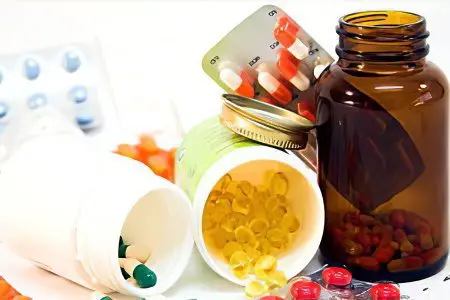
There are specific indications for the appointment of antibiotic therapy against the background of diarrhea.
This applies to cases where the liquefaction of the stool was provoked by a disease of a bacterial nature:
Salmonellosis.
Cholera.
Dysentery.
If diarrhea is a consequence of a viral infection, then antibiotics should be discontinued. Failure to comply with this recommendation threatens the development of complications.
Taking antibiotics allows you to destroy the pathogenic bacterial flora, but along with it, they kill the beneficial bacteria that are always present in the intestines. That is why it is forbidden to use them without good reason. As a result of improper therapy, it will only be possible to aggravate the course of the disease.
Symptoms that may indicate the need for antibiotic therapy:
Profuse loose stools.
The presence of green impurities in the stools.
The presence of mucus in the stool in large quantities.
The presence of blood in the stool.
Why doesn’t common diarrhea require antibiotics?
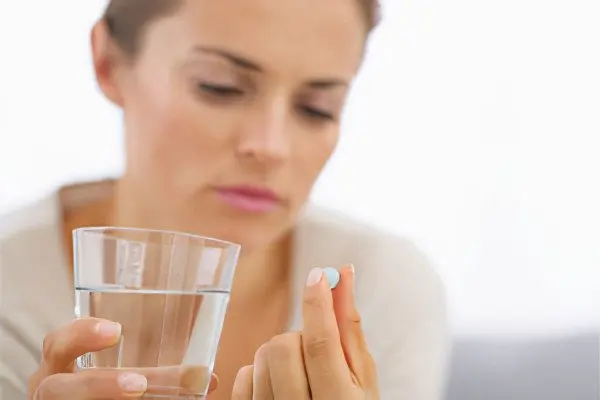
Diarrhea is not always caused by bacteria.
The cause of liquefaction and frequent stools can be:
Viral infection (enteroviruses, rotoviruses, caliciviruses).
Parasitic invasion (infection with helminths).
Toxic infection.
Intestinal infection with protozoa.
Moreover, it is not always the infection that causes diarrhea.
The cause of its occurrence can be reduced to one of the following factors:
Taking medicines.
Inflammation of the small or large intestine against the background of chronic damage to the digestive tract.
Ischemic bowel disease.
Diseases of other organs that are part of the digestive system.
Failure in the processes of digestion of food.
Violation of the absorption of nutrients.
Lactase insufficiency.
Enzymatic deficiency, disorders in the gallbladder.
Sometimes diarrhea develops against a background of neurological disorders, for example, with strong emotional excitement or stress.
As a rule, intestinal infections that were not provoked by the bacterial flora go away on their own. Antibiotics are not required in this case. Moreover, they can cause serious harm to health. For example, if diarrhea was triggered by the ingestion of enterotoxins, then taking antibiotics can cause toxic and infectious shock.
It is dangerous to take antibacterial drugs if the intestines are affected by the E.Coli bacterium. Under the influence of these drugs, bacteria begin to produce shigatoxins. They have a hemolytic-uremic effect. This can lead to the fact that the infection will spread throughout the body and it will be very difficult to get rid of it.
Diarrhea that develops while taking antibacterial drugs or after their withdrawal cannot be treated with these medicines either. This will lead to the fact that the entire intestinal microflora will be completely destroyed, there will be a failure in metabolism. Against this background, osmotic diarrhea often develops, which is fraught with serious complications for human health.
How to choose a drug for the treatment of diarrhea?
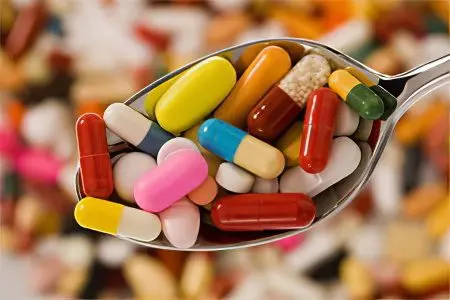
To get rid of diarrhea and not harm your own health, you first need to get medical advice. Only after passing all the necessary tests, the doctor will be able to choose an adequate therapy. It will be etiological, that is, proceed from the causes of the disease.
The goal of antibiotic therapy is the destruction of pathogenic flora, the elimination of symptoms of the disease, and the restoration of normal bowel function.
The antibiotic is selected depending on the sensitivity of the pathogenic flora to it. In addition, the doctor may prescribe intestinal antiseptics, which allow you to quickly get rid of the infection.
If a patient has a history of an allergic reaction to a particular drug, then before taking an antibiotic, he is prescribed special allergenic tests.
Taking antibiotic therapy is possible according to the following indications:
The patient has an infection provoked by an invasive bacterial flora. Diarrhea is characterized by profuse loose stools with mucus and blood.
Against the background of an intestinal infection, the patient’s condition is complicated by other somatic diseases. Kidneys, heart, lungs can be affected. It is not excluded the development of such a serious complication as blood poisoning.
It is mandatory to take antibiotics in the treatment of dysentery and escherichiosis, when the infection spreads through the bloodstream throughout the body. Antibiotics are sometimes recommended for people with traveler’s diarrhea.
Effective drugs for the treatment of diarrhea:
Levomycetin is a drug that has been used to treat bacterial diarrhea for many years. Levomycetin has a wide spectrum of action, due to which it fights most pathogenic microorganisms.
Metronidazole is an antimicrobial and antiprotozoal drug.
Ciprofloxacin is a modern antibacterial drug that allows you to get rid of most diarrhea pathogens.
Amoxicillin is an antibiotic that is effective against a number of intestinal and extraintestinal pathogens.
In any case, before taking this or that drug, you need to get medical advice.
What antibiotics are prescribed for diarrhea in children?
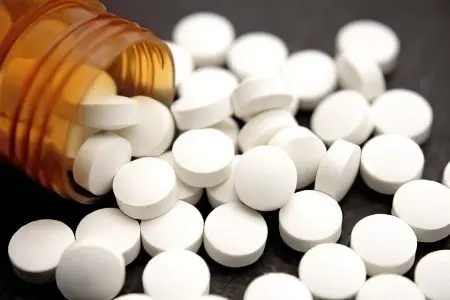
Antibiotics for the treatment of diarrhea in children are prescribed only when the disease is caused by a bacterial infection. Viral diarrhea is treated with other medications. Before starting treatment, the exact cause of diarrhea should be established, which will allow the choice of a targeted drug.
Prescribing antibacterial drugs in childhood requires the following diseases accompanied by diarrhea:
Botulism;
Salmonellosis;
Dysentery;
Giardiasis;
Typhoid fever and paratyphoid;
Cholera, etc.
In case of botulism
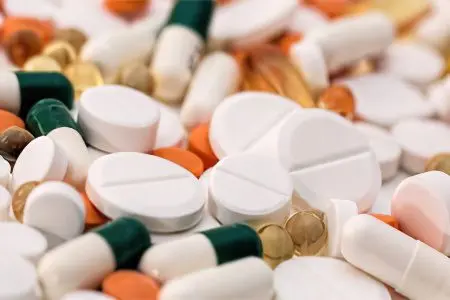
The causative agent of botulism is Clostridium Botulinum. Infection occurs during the consumption of foods containing this bacterium. Of particular danger in this regard are home-made canned food.
Symptoms of botulism: diarrhea, vomiting, abdominal pain. The severe course of the disease requires the following medications:
Levomycetin. Children 3-8 years old give sweat 125 mg of the drug, 3-4 times a day. Children 8-16 years old are prescribed 250 mg of the drug 3-4 times a day. The course of treatment lasts 7-10 days.
Ampicillin. The dose of the drug is calculated depending on the patient’s body weight (12-15 mg/kg). Take the drug 4 times a day. The course of treatment lasts 5-10 days.
With salmonellosis
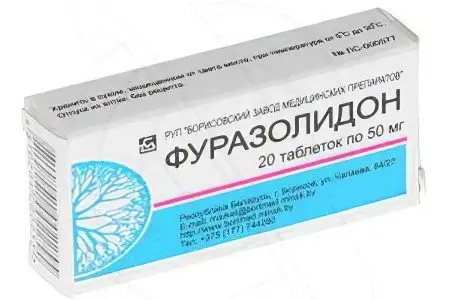
The causative agent of salmonellosis is Salmonella. Infection occurs during the use of food contaminated with this parasite.
Symptoms of salmonellosis: profuse and prolonged diarrhea, vomiting, nausea, high body temperature.
Salmonellosis requires taking the following drugs:
Furazolidone. The dosage of the drug is calculated by the doctor. It depends not only on the age, but also on the weight of the child. The course of treatment lasts at least 10 days.
Levomycetin.Children 3-8 years old give sweat 125 mg of the drug, 3-4 times a day. Children 8-16 years old are prescribed 250 mg of the drug 3-4 times a day. The course of treatment lasts 7-10 days.
Doxycycline. The drug is prescribed for the treatment of children older than 8 years. The calculation of the dose depends on the weight of the child (2-4 mg / kg). Multiplicity of reception: 1-2 times a day.
With cholera
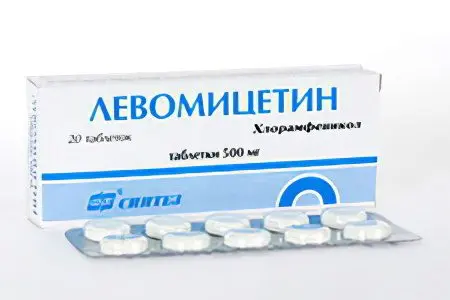
The causative agent of cholera is Vibrio cholerae. Infection occurs when eating food or water containing Vibrio cholerae.
The causative agent of cholera settles in the small intestine and provokes the following symptoms: diarrhea, vomiting, dehydration, leg cramps.
For the treatment of cholera, the following drugs are prescribed:
Levomycetin. Children 3-8 years old give sweat 125 mg of the drug, 3-4 times a day. Children 8-16 years old are prescribed 250 mg of the drug 3-4 times a day. The course of treatment lasts 7-10 days.
Tetracycline. The drug is prescribed for the treatment of children older than 8 years. The dose is calculated based on the child’s body weight (25-50 mg / kg), Tetracycline is taken 4 times a day. The duration of treatment is 5 days.
With giardiasis
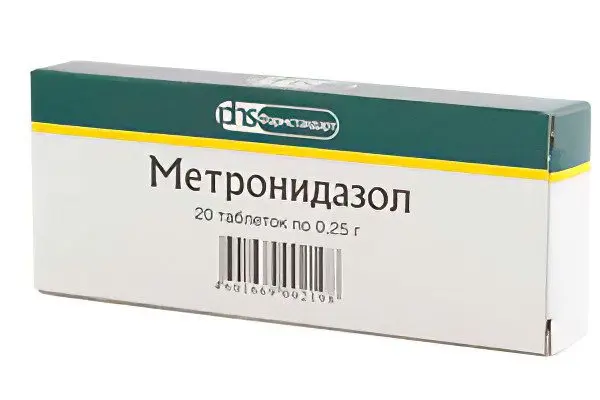
The causative agent of the infection is Giardia (Lamblia) intestinalis. Infection occurs by ingestion of food or water containing the parasite. Giardiasis can be transmitted through unwashed hands.
Symptoms of infection: severe diarrhea, lack of appetite, nausea, bloating.
Treatment of giardiasis requires the appointment of the following antibiotics:
Metronidazole. The drug is prescribed for children over 12 years of age. The calculation of the dose depends on the body weight of the child (7,5 mg / kg). Multiplicity of reception – 3 times a day.
With typhoid fever and paratyphoid
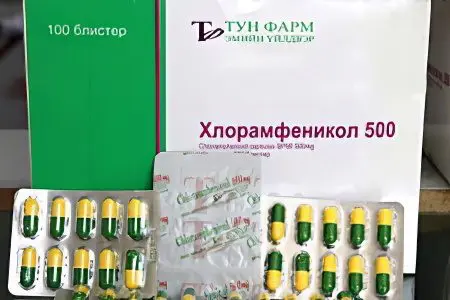
The causative agent of the infection is Salmonella. Infection occurs when food or water containing pathogenic microorganisms is ingested. They settle in the small intestine.
Symptoms of typhoid fever: diarrhea, which can be replaced by constipation, flatulence, lack of desire to eat, headaches.
Typhus and paratyphoid are treated with the following medicines:
Chloramphenicol. Children under 3 years of age, 15 mg / kg. Children 3-8 years old, 150-200 mg. Children over 8 years old, 200-400 mg. The drug is taken 3-4 times a day for a week (maximum 10 days).
Amoxicillin. Children 2-5 years old are prescribed 125 mg 3 times a day. Children aged 5 years and older are prescribed 250-500 mg 3 times a day. The course of treatment lasts for 5-12 days.
With dysentery
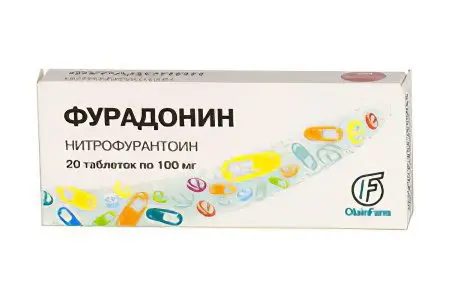
The causative agent of the infection is Shigella. The bacterium enters the body through unwashed hands, or when drinking dirty water.
Dysentery is characterized by the following symptoms: profuse diarrhea with mucus, blood and pus, vomiting and nausea, headache, weakness.
For the treatment of dysentery, the following medications are required:
Furadonin. The calculation of the dose depends on the body weight of the child: 5-8 mg / kg. The resulting daily dose will need to be divided into 4 doses.
Ercefuril. The drug is prescribed for the treatment of children aged 6 years and older. The patient should drink 3-4 capsules per day. The course of treatment lasts for a week, but no more.
Intetrix. Children are prescribed 1-2 tablets 2 times a day. The course of treatment is 10 days.
Recovery of bowel function after taking antibiotics

Diarrhea after taking antibiotics is very common. This can happen when prescribing high doses of the drug, or when it was chosen incorrectly.
Diarrhea can begin after prolonged treatment with antibacterial drugs, even if the therapy was fully justified and prescribed by a doctor. The fact is that such drugs are detrimental not only to pathogenic, but also to their own intestinal microflora. In order to prevent such a situation, it is necessary to take drugs at the stage of antibiotic treatment to restore and maintain the intestinal biocenosis. These are the so-called probiotics and prebiotics.
Many patients ask themselves: how to make sure that the treatment of diarrhea does not lead to a violation of the intestinal microflora? In order to prevent antibiotic-associated diarrhea, or quickly get rid of it, you need to know and follow certain recommendations.
Own intestinal microflora is sensitive to the components that make up antibacterial agents.
To restore the natural biocenosis of the small and large intestine, the following tips should be taken into account:
Follow the diet.
Take drugs aimed at correcting the intestinal microflora.
Avoid dehydration.
Avoid severe intoxication of the body.
Preparations that allow you to restore the intestinal microflora:
Probiotics, which contain live bacteria.
Prebiotics, which contain components that contribute to the normalization of intestinal microflora.
Synbiotics, which contain substances that are part of probiotics and prebiotics.
In addition to the fact that these drugs allow you to restore your own intestinal microflora, they also help to inhibit the growth of pathogenic microorganisms, thereby bringing recovery closer. The intake of probiotics and prebiotics allows you to better absorb vitamins from food, and also creates favorable conditions for the body to be able to produce the vitamins necessary for its life. In parallel, digestive functions are normalized, the intestines are cleansed of toxic substances.
Probiotics
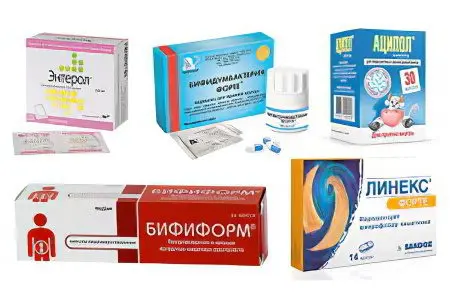
After entering the intestines, the beneficial bacteria contained in the preparation begin to actively grow and multiply.
All probiotics are represented by 4 groups:
First generation (monobiotics). These preparations contain only 1 type of bacteria in their composition: bifidobacteria, colibacilli or lactobacilli.
Second generation (antagonists). These preparations contain yeast fungi and bacteria that contribute to the inhibition of the growth of pathogenic flora. They themselves do not settle in the intestines, being excreted naturally.
Third generation (polycomponent preparations). These probiotics contain several types of bacteria, which, after entering the intestines, begin their growth and development.
Fourth generation (probiotics-sorbents). These drugs, in addition to beneficial bacteria, contain sorbents, which increases the effectiveness of the treatment.
Prebiotics
Prebiotics contain components that are the basis for nourishing beneficial flora, which contributes to its growth and reproduction.
It can be pectin, fiber, sorbitol, xylitol and other carbohydrates. Prebiotics should be taken in combination with probiotics.
Synbiotics
These drugs combine complexes of beneficial bacteria and the basis for their growth and development. That is, symbiotics have both the effects of probiotics and prebiotics. It is this group of drugs that doctors most actively prescribe for the treatment of diarrhea provoked by taking antibacterial drugs.
Diet

Compliance with the diet is a prerequisite during the treatment of diarrhea. A light menu allows you to reduce the load on the digestive organs, provides the basis for a quick recovery, saturates the body with nutrients.
When a person suffers from profuse diarrhea, he needs to focus on the following foods:
Boiled eggs.
Omelette for a couple.
Mucous cereals: semolina, rice, buckwheat.
Rice decoction.
Kissel with fruits and berries.
Baked apples.
Crackers
In order for cereals to have the necessary astringent properties, they should be boiled in more water than usual. Grains should be heavily boiled. This will allow you not to burden the intestines.
Kissels should be cooked on the basis of sweet berries and fruits. You can dilute the juice with water.
When the acute stage of diarrhea passes, it is allowed to introduce fish and meat into your menu. Low-fat varieties should be preferred. Meat dishes should be prepared in the form of soufflés, cutlets, casseroles, meatballs. The method of heat treatment should be chosen as gentle as possible – this is steaming or boiling.
Soups and mashed potatoes are cooked on the basis of vegetables such as: carrots, potatoes, broccoli. Eating sweet peppers, white cabbage, legumes and mushrooms should be avoided.
In order not to increase diarrhea and gas formation, foods such as coffee, carbonated drinks, black bread, spices should be absent from the menu. They can be eaten no earlier than 10 days after recovery. The same rule is true for fatty, fried, salty and pickled foods. Be careful with dairy products.
Excellent restore intestinal microflora lactic drinks. Therefore, it is useful to drink yogurt, kefir, sourdough. You should buy those dairy products that have a short shelf life. On the packaging you can read exactly what microorganisms this or that drink is enriched with. You can enter kefir and yogurt after diarrhea is completely stopped.
Prevention of dehydration and intoxication
During each stool, the patient loses a large amount of fluid, so it must be replenished in a timely manner. Otherwise, the person is in danger of dehydration. In addition to water, you can drink slightly brewed green and black tea, herbal decoctions, juices diluted with water.
Lemon juice has an excellent antiseptic effect, so it can be added to drinks, but in limited quantities.
Compotes based on quince, bird cherry and blueberries have an astringent effect.
Contraindications to antibiotic treatment
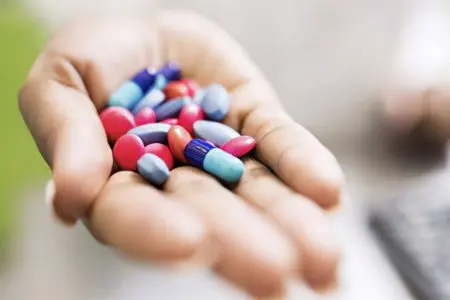
In 80% of cases, intestinal infections go away on their own, so taking antibacterial drugs is justified in no more than 20% of cases. Antibiotics should be prescribed by a doctor, and only on the basis of laboratory tests. It is important to evaluate the benefits of taking the drug and the possible harm that it can cause.
Not every infectious diarrhea requires antibiotic therapy. Sometimes it is enough to provide the patient with high-quality rehydration for the intestines to cope with the pathology on their own.
In addition, taking antibiotics can harm the body. So, there is a group of bacteria that produce enterotoxins. When these bacteria quickly die, which is facilitated by antibiotic therapy, a person may develop toxic shock. This condition poses a threat not only to health, but also to the life of the patient.
A similar condition can develop with the massive death of E. Coli, which produce Shiga toxin, which has a hemolytic-uremic effect.
With salmonellosis, taking antibacterial drugs is associated with an increase in the time period during which the bacteria will be removed from the body.
Taking antibiotics may not prevent, but provoke an increase in stool. This condition is called antibiotic-associated diarrhea. So, antibiotics have a detrimental effect on their own intestinal microflora, which disrupts the absorption of carbohydrates. As a result, the patient develops osmotic diarrhea. This state of the body is a favorable environment for the growth and development of pathogenic flora.
Clavulanic acid and Erythromycin affect intestinal motility. Preparations from the tetracycline and penicillin groups can provoke an inflammatory process on the thick wall of the intestine.
Therefore, diarrhea develops either against the background of taking antibacterial drugs, or after their cancellation. In order to prevent the development of more severe complications, it is necessary to carry out rehydration therapy and follow the instructions given by the doctor.
Safety measures
Diarrhea can be life threatening. Therefore, if it does not go away for several days, you should consult a doctor. An immediate consultation with a specialist requires acute intoxication, severe pain and disturbances in the functioning of other organs.
A formidable symptom is the presence of pus and blood in the feces. Self-treatment in this case is an unacceptable measure. This is especially true for the self-administration of antibacterial drugs.









